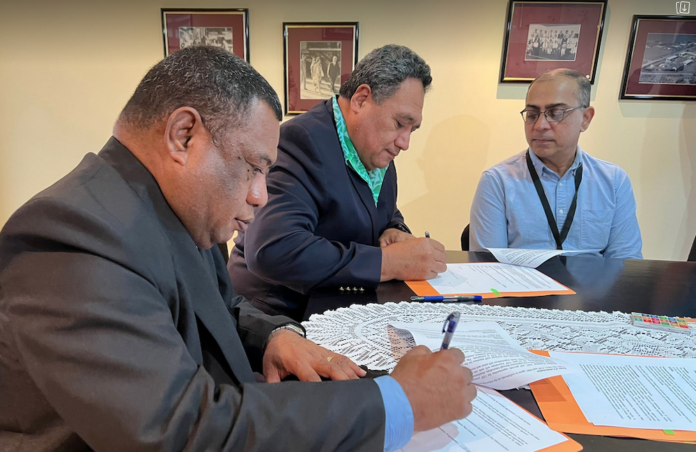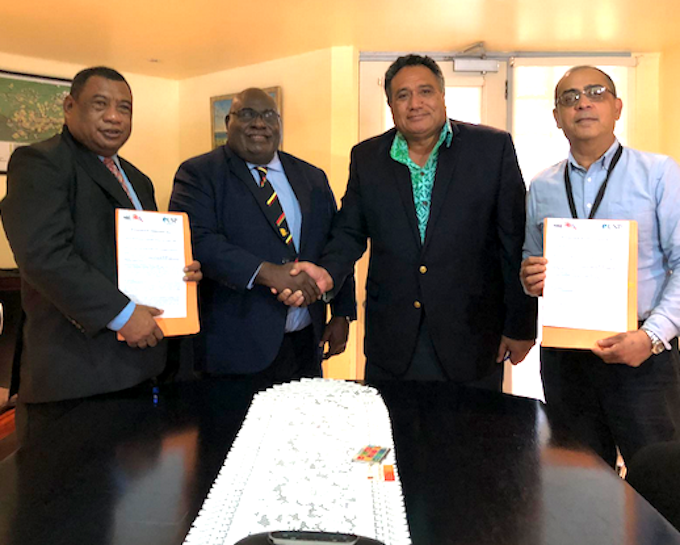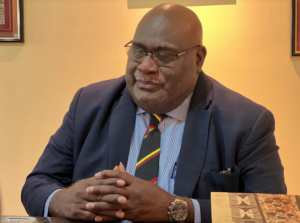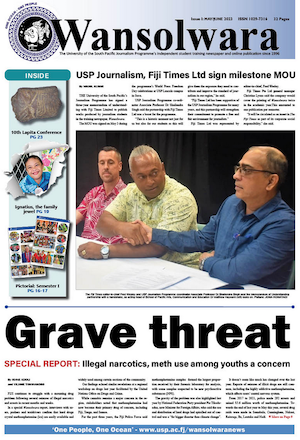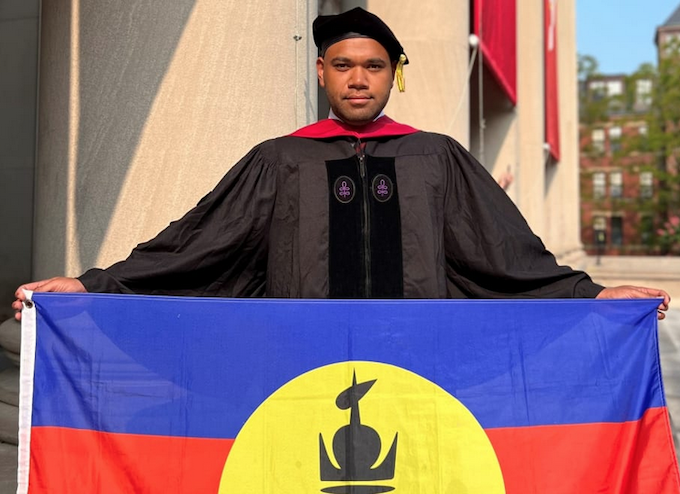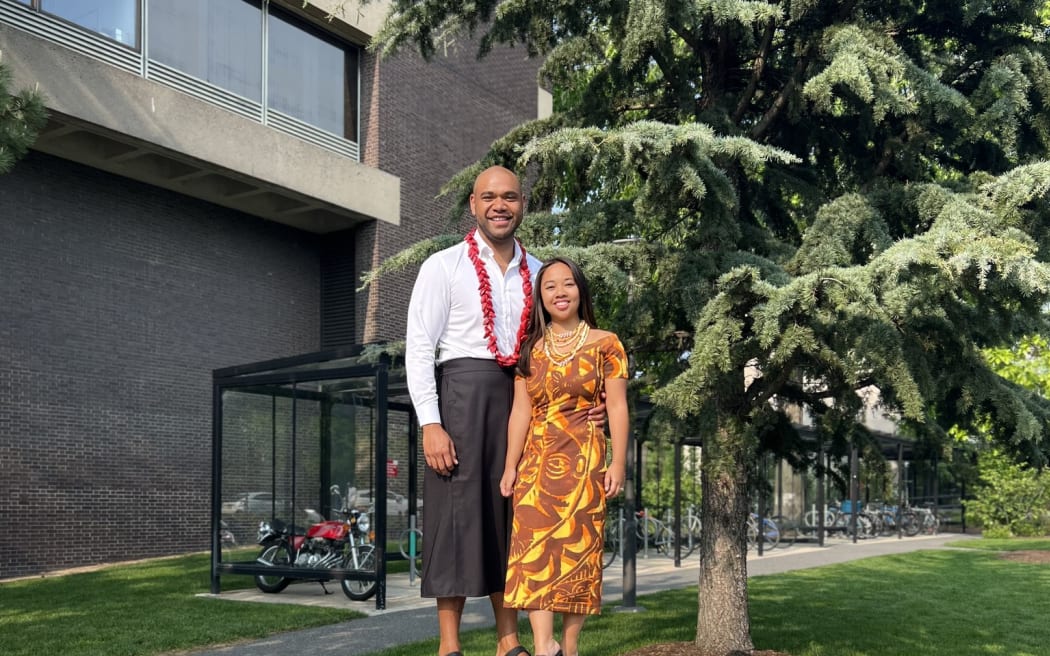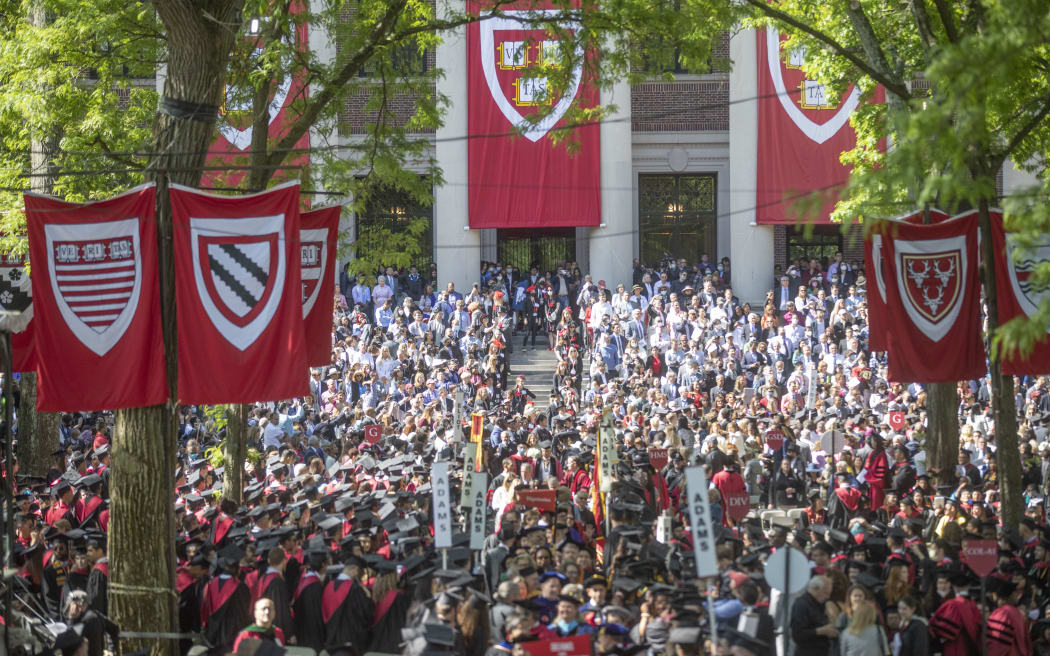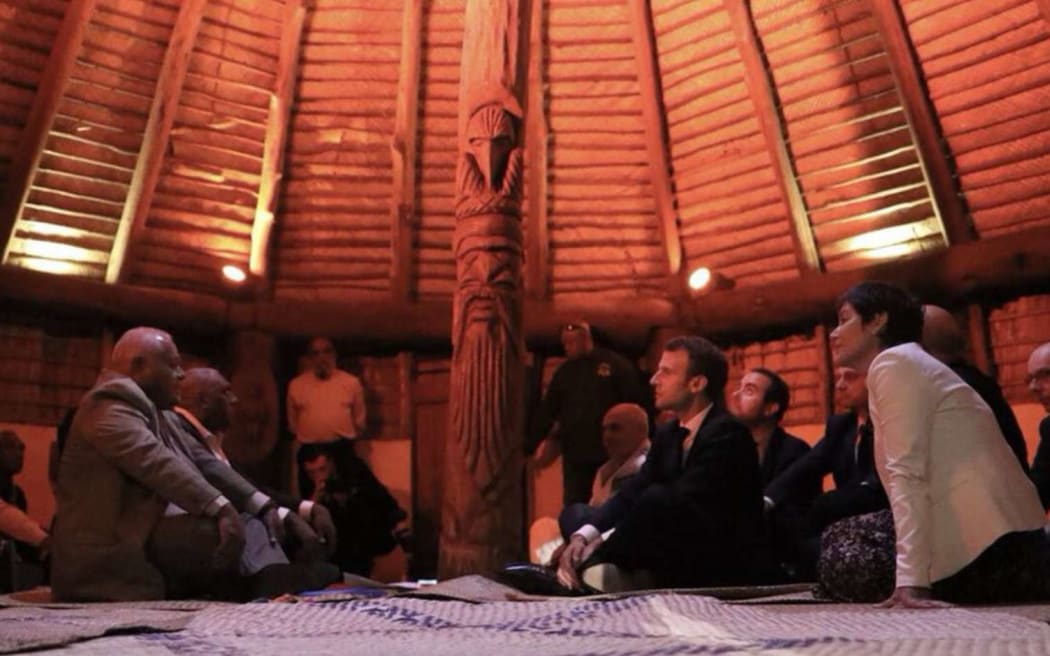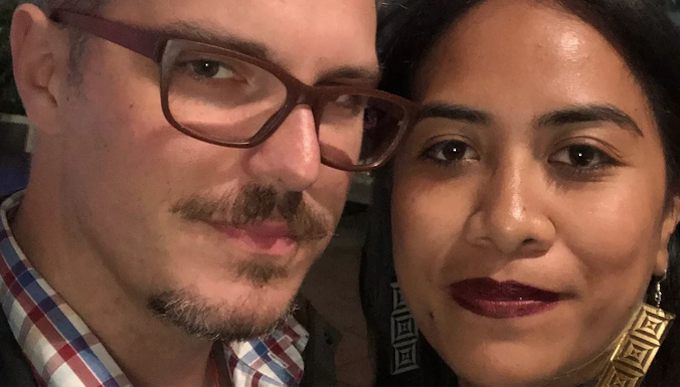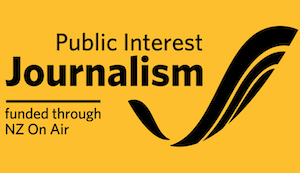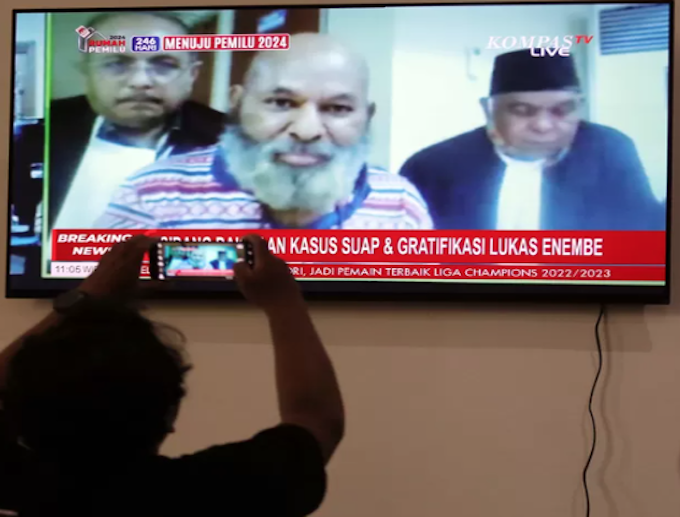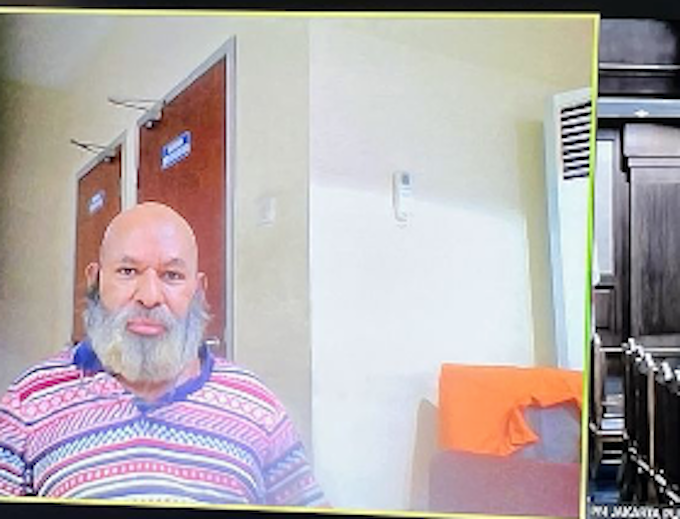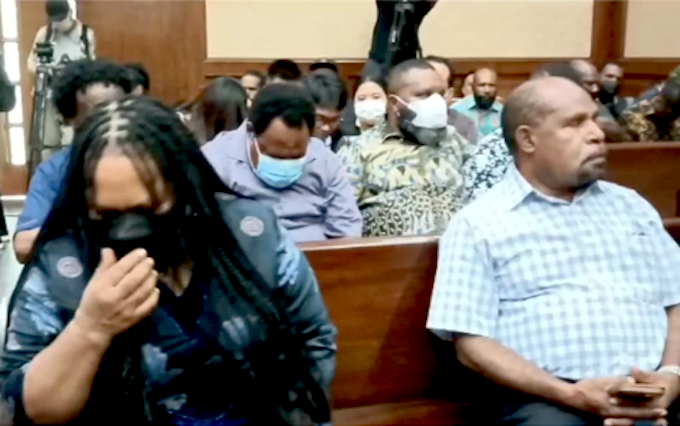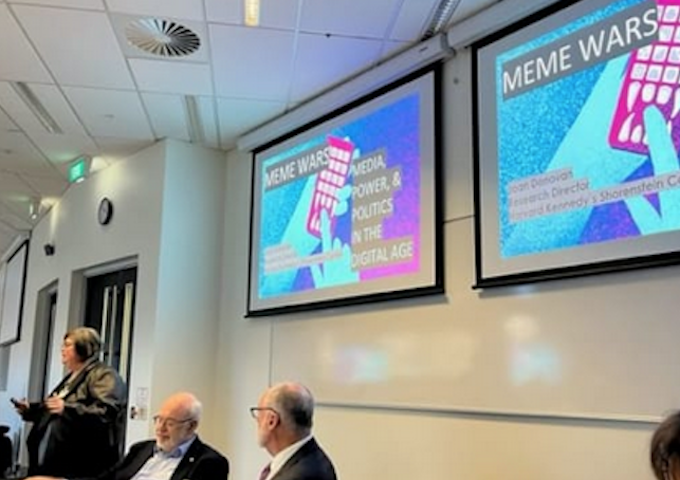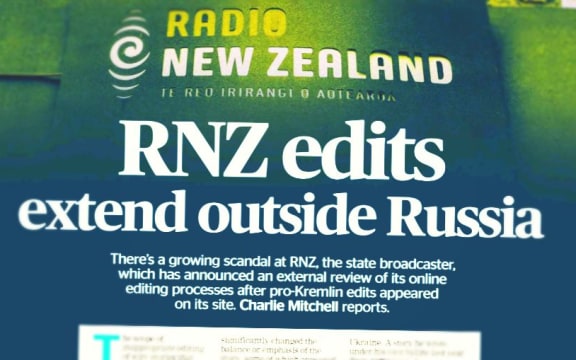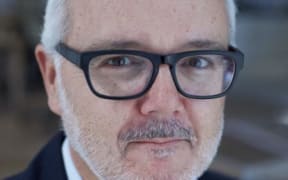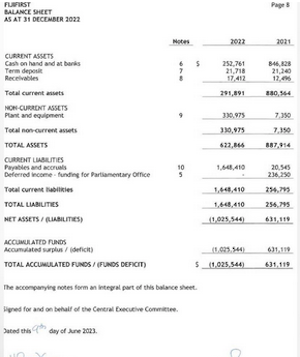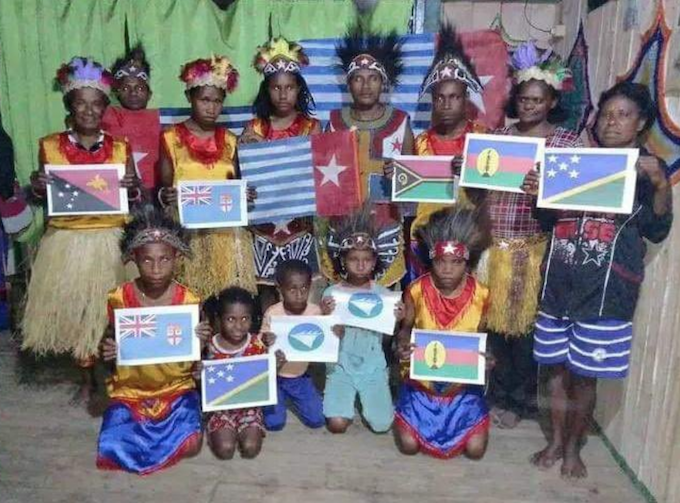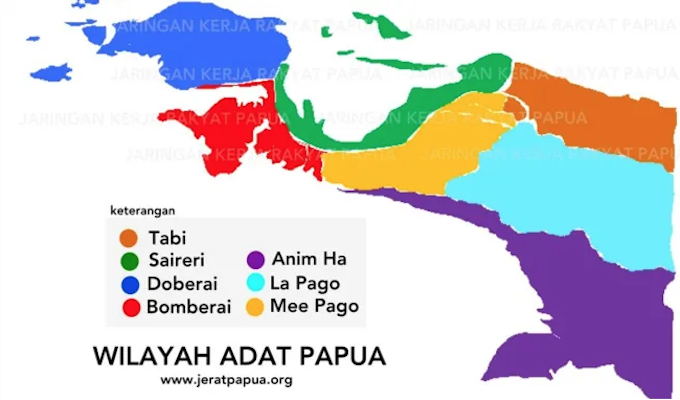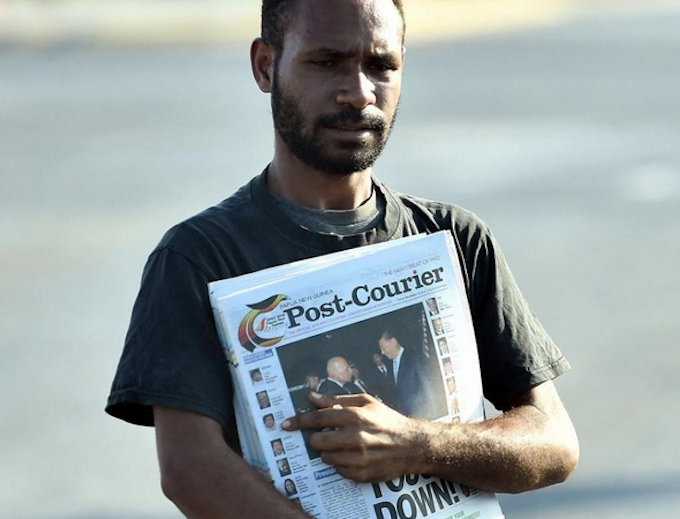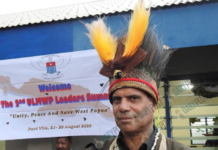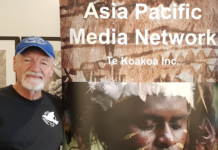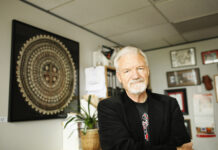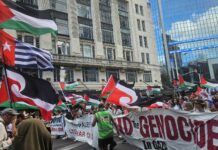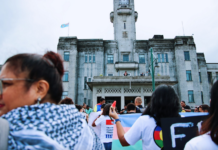By Kalinga Seneviratne in Suva
In a keynote speech at the annual Pacific Update conference the region’s major university, Fiji deputy Prime Minister Professor Biman Prasad has warned delegates from the Pacific, Australia and New Zealand that Oceania is not in good shape because of problems not of their own making.
Professor Prasad was speaking at a three-day conference at the University of the South Pacific where he was the former dean of the Business and Economic Faculty,
He listed these problems as climate change, geopolitics, superpower conflict, a declining resource base in fisheries and forests, environmental degradation and debilitating health problems leading to significant social and economic challenges.
He asked the delegates to consider whether the situation of the South Pacific nations is improving when they take stock of where the region is today.
“What is clear, or should be clear to all of us, is that as a region, we are not in entirely good shape,” said Professor Prasad.
Pacific Update, held annually at USP, is the premier forum for discussing economic, social, political, and environmental issues in the region.
Held on June 13-15 this year, it was co-hosted by the Development Policy Centre of the Australian National University (ANU) and USP’s School of Accounting, Finance and Economics.
Distant wars
In his keynote, Professor Prasad pinpointed an issue adversely affecting the region’s economic wellbeing.
“Our region has suffered disproportionally from distant wars in Ukraine,” he said. “Price rises arising from Russia’s war on Ukraine is ravaging communities in our islands by way of price hikes that are making the basics unaffordable.
“Even though not a single grain of wheat is imported from this region, the price increase for a loaf of bread across the Pacific is probably among the highest in the world.
“This is not unbelievable, not to mention unjust,” he noted, adding that this is due to supply chain failures in these remote corners of the world where the cost of shipping goods and services have spiralled.
Though he did not specifically mention the collateral damage from economic sanctions imposed by the West, he did point out that shipping costs have increased several hundred percent since the conflict started.
“In the backdrop of all these, or should I say forefront, is a runaway climate crisis whose most profound and acutest impacts are felt by small island states,” said Professor Prasad. “The impacts of climate change on our economies and societies are systematic; they are widespread, and they are growing”.
Rather than focusing on the problems listed by Professor Prasad, this year’s Pacific Update devoted a significant part of the event to the Pacific Australia Labour Mobility (PALM) scheme, where Australia has opened its borders to thousands of workers from the Pacific island countries with new provisions provided for them to acquire permanent residency in the country.
Development aid scheme
Australia is presenting this as a development assistance scheme where many academics presenting research papers showed that the remittances they send back help local economies by increasing consumption(and economic growth).
Hiroshi Maeda, a researcher from ANU, said that remittances play a crucial role in the economy of the Kingdom of Tonga in the Pacific, a country of just over 106,000 people.
According to recent census data from Australia, New Zealand and the United States of America quoted in a UN report, 126.540 Tongans live overseas. According to a survey by Maeda, temporary migration has helped to increase household savings by 38.1 percent from remittances sent home.
It also increases the expenditure on services such as health, education and recreation while also helping the housing sector.
There was a whole session devoted to the PALM scheme where Australian researchers presented survey findings done among Pacific unskilled workers, mainly working in the farm sector in Australia, about their satisfaction rates with the Australian work experience.
Dung Doan and Ryan Edwards presented data from a joint World Bank-ANU survey. They said there had been allegations of exploited Pacific workers and concerns about worker welfare and social impacts, but this is the first study addressing these issues.
They have interviewed thousands of workers, and the researchers say “a majority of the workers are very satisfied” and “social outcomes on balance are net positive”.
Better planning needed
When IDN asked a panellist about PALM and other migrant labour recruitment schemes of Australia such as hiring of nurses from the Pacific and the impact it is creating — especially in Fiji where there are labour shortages as a result — his response was that it needs better planning by governments to train its workers.
But, one Pacific academic from USP (who did not want to be named) told IDN later, “Yes, we can spend to train them, and Australia will come and steal them after six months”. She lamented that there needed to be more Pacific academics who made their voices heard.
One such voice, however, was Denton Rarawa, Senior Advisor in Economics of the Pacific Islands Forum (PIF) from the Solomon Islands. He pointed out that a major issue the Pacific region needed to address to reach the sustainable development goals (SDGs) was to consider reforms and policies that strike a balance between supporting livelihoods and reducing future debt risks.
“Labour Mobility is resulting in increasing remittances to our region,” but Rarawa warned, “It is having an unintended consequence of brain drain with over 54,000 Pacific workers in Australia and New Zealand at the end of last year.”
All Pacific island nations beyond Papua New Guinea and Fiji have small populations — many have just about 100,000 people, and some, like Nauru, Tuvalu and Kiribati, have just a few thousand.
Rarawa argues that even though “we may be small in land mass, our combined exclusive economic zone covers nearly 20 percent of the world’s surface as a collective, we control nearly 10 percent of the votes at the United Nations.
“We are home to over 60 percent of the world’s tuna supply — therefore, we are a region of strategic value”.
Rarawa believes that good Pacific leadership is needed to exploit this strategic value for the benefit of the people in the Pacific.
“The current strategic environment we find ourselves in just reinforces and re-emphasize the notion for us to seize the opportunity to strengthen our regional solidarity and leverage our current strategic context to address our collective challenges,” argues Rarawa.
“We need deeper regionalism (driven by) political leadership and regionalism (with) people-centred development (that) brings improved socio-economic wellbeing by ensuring access to employment, entrepreneurship, trade, finance and investment in the region.”
Dr Kalinga Seneviratne is a Sri Lanka-born journalist, broadcaster and international communications specialist. He is currently a consultant to the journalism programme at the University of the South Pacific. He is also the former head of research at the Asian Media Information and Communication Center (AMIC) in Singapore. In-Depth News (IDN) is the flagship agency of the non-profit International Press Syndicate.



